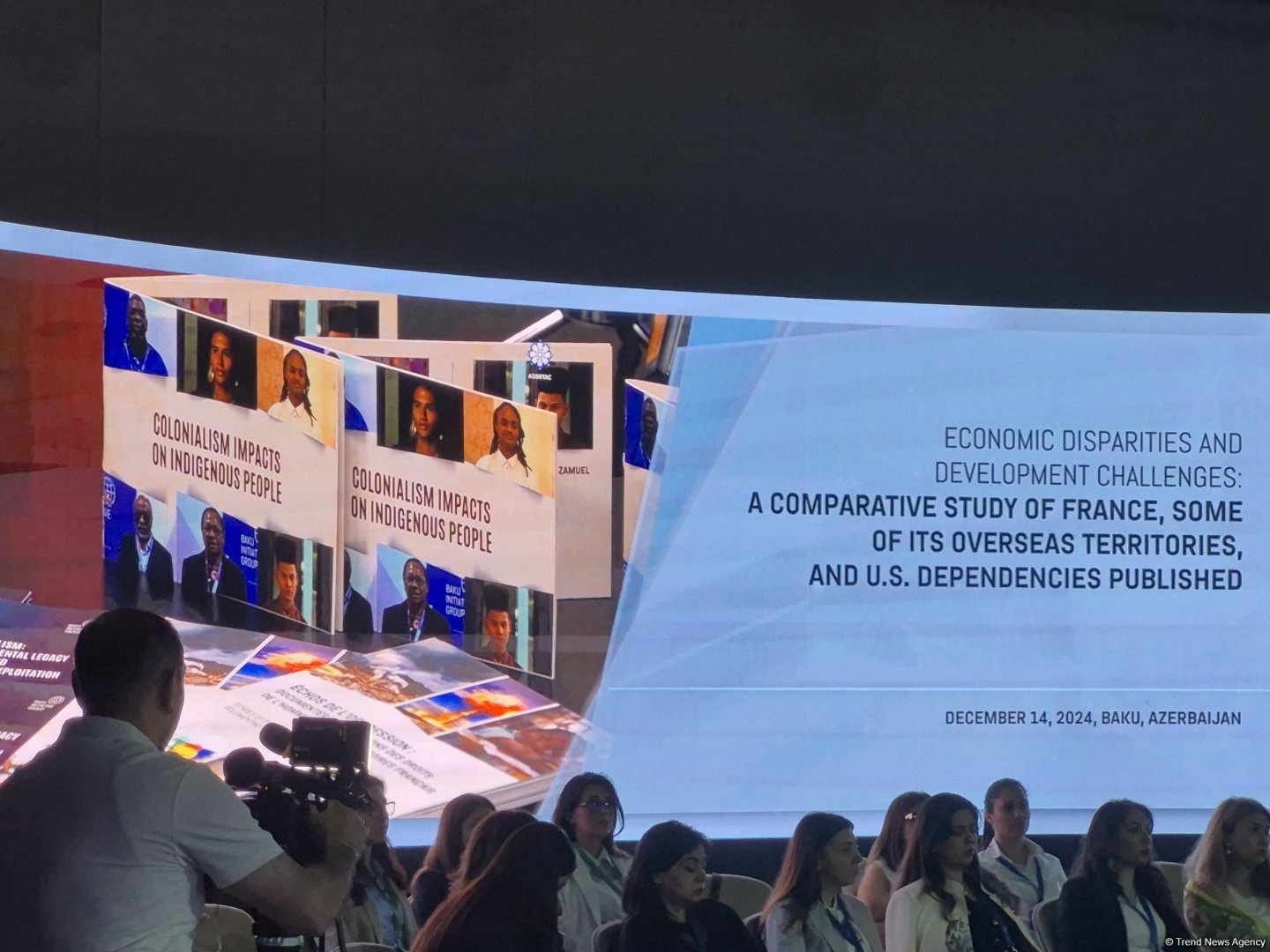BAKU, Azerbaijan, June 3. An international scientific conference on the topic "Imperial structure: ideologies of colonialism and reality" is being held in the capital of Azerbaijan, with the organization of the Baku Initiative Group, Trend reports.
The conference is attended by experienced UN experts in the field of decolonization, renowned scholars working in former and current French colonies, recognized experts in international law, as well as foreign ambassadors accredited to Azerbaijan and members of parliament.
The event will include an in-depth scientific and methodological analysis of the grave consequences of colonial policy, methods of discrimination applied to people under the oppression of colonial states, as well as political, economic, and cultural restrictions - components of neocolonialism, and the policy of deliberate destruction of national identity.
The obstacles created by colonial powers on the way to completing the process of decolonization, as provided for by international law and UN resolutions, as well as the use of existing opportunities within international organizations, the implementation of effective mechanisms, and ways to eliminate systemic inequalities at the level of international institutions will be discussed.
Executive Director of Baku Initiative Group (BIG) Abbas Abbasov stated that colonialism is not just a historical injustice - it remains a pressing challenge.
“ While it is important to recognize that colonialism is a historical injustice, we should not see it as a phenomenon that remains only in the past,” Abbasov stressed.
According to him, the policy of colonialism still manifests itself today in various forms - whether it is political pressure, economic restrictions, cultural hegemony, or institutional inequalities.
Established during the July 2023 ministerial meeting, the BIG has undertaken to support international efforts against contemporary forms of colonialism through research, education, and inclusive dialogue.
“Over the past two years, we have held about 30 international events dedicated to Guadeloupe, Mayotte, Caracas, French Guiana, Reunion, Corsica, Martinique, and other territories that remain under colonial rule to this day,” Abbasov noted.
He noted that such colonial structures contradict the UN Charter, the Universal Declaration of Human Rights, and numerous resolutions of the UN General Assembly. Abbasov called for using international legal mechanisms against direct and hidden forms of colonialism, raising public awareness and developing multilateral cooperation.
“The conference aims to understand how colonial ideologies were formed, institutionalized, and justified, and most importantly, to gain a deeper understanding of how their legacy affects the modern world order,” Abbasov said.
Carlyle Corbin, an international governance consultant representing the United States, noted that colonialism is reflected in the UN Charter as a matter of international law. Since the creation of the United Nations in 1945, decolonization (the abolition of colonialism) has occurred in three main phases. Decolonization remains the focus of the UN today, and processes involving a number of territories are still ongoing.
“The first phase began in 1946 with the creation of the list of Non-Self-Governing Territories. At that time, 74 territories were voluntarily added to the list by the UK, the US, France, the Netherlands, New Zealand, and other administrative powers.
The period from 1946 through 1960 is considered the “first phase of adjustment.” During this phase, the definition of “full self-government” became a matter of debate. This principle is reflected in Article 73 of Chapter XI of the UN Charter. Some territories were removed from the list by UN resolutions, but in some cases, notably by France, this step was taken unilaterally. For instance, French Polynesia (formerly French Oceania).
In 1960, the UN adopted the “Declaration on the Abolition of Colonialism”. Parallel to this document, Resolution 1541 established the principles of self-development, independence, reunification, and integration. On the basis of these principles, many territories entered the process of decolonization. The second phase (1960-1990) is considered a period of rapid decolonization. A number of territories, especially in the Caribbean and Pacific regions, changed their status during this period and entered a new political stage. The process of decolonization continues to this day,” Carlyle Corbin added.
Will be updated







